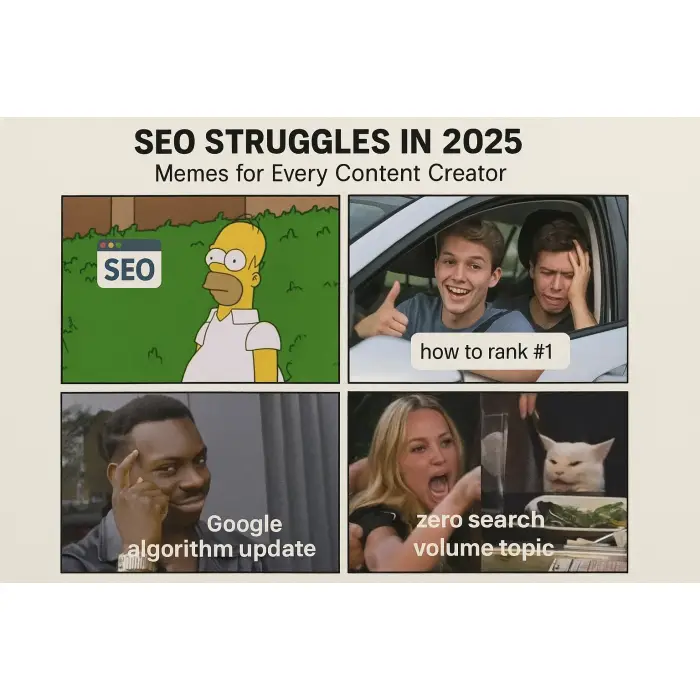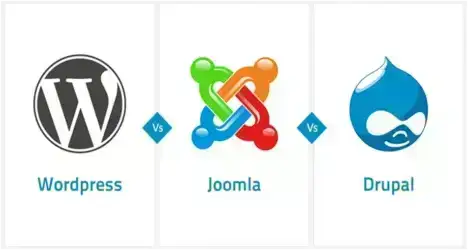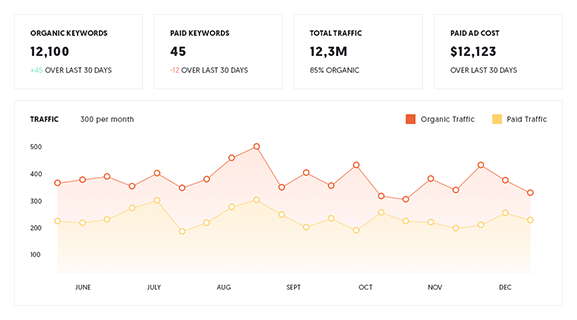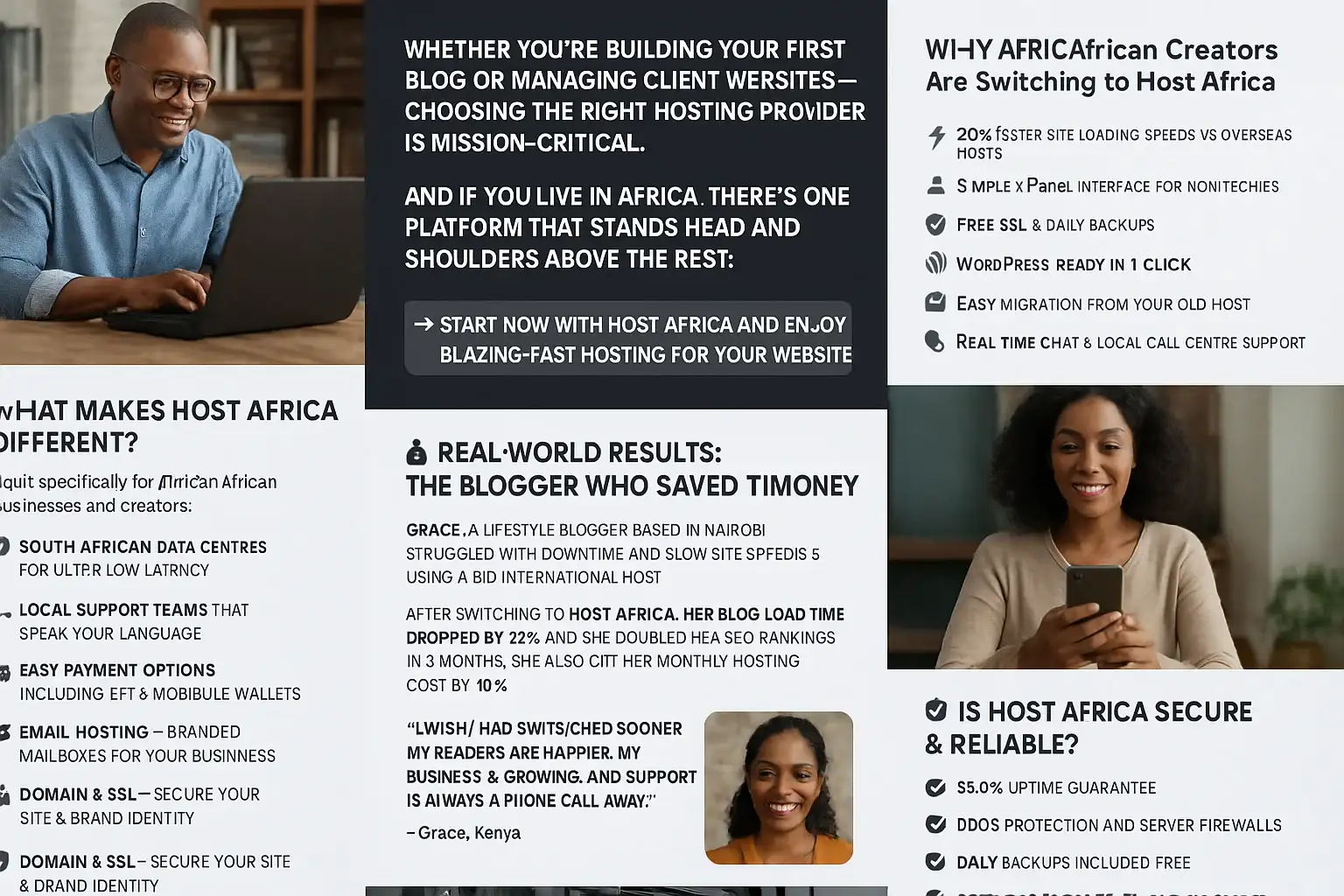
AI and SEO Strategy: How to Boost Organic Traffic Growth

AI and SEO Strategy: How to Boost Organic Traffic Growth
Phase 1: Understanding the New Era of AI in SEO
In today's digital landscape, search engines are no longer the simple keyword matchmakers they once were. Google, Bing, and other platforms have adopted artificial intelligence (AI) to refine how they rank, index, and deliver results. For online businesses, bloggers, and entrepreneurs, this means that SEO strategy must evolve. It's no longer enough to stuff articles with keywords or chase backlinks without context. To truly boost organic traffic growth, you need to understand how AI shapes search--and how to use it to your advantage.
Why AI Matters More Than Ever in SEO
Artificial intelligence is at the heart of almost every major search engine update in the last decade. Consider Google's RankBrain, BERT, and MUM algorithms--all of them use machine learning and natural language processing (NLP) to interpret content in ways that mimic human understanding. This is a game changer for SEO because:
- AI doesn't just look at keywords--it evaluates search intent.
- Search engines reward content that demonstrates contextual relevance and expertise.
- AI tools now assess user experience (UX) signals, such as time on page, bounce rate, and engagement.
- AI improves voice search and mobile-first indexing, reshaping how people interact with content.
In short, SEO has shifted from a purely technical game to a holistic strategy that balances keywords, quality, authority, and human experience.
The Old SEO vs. The AI-Powered SEO
To appreciate how much things have changed, let's briefly compare old SEO tactics with today's AI-driven expectations:
- Old SEO: Keyword stuffing, backlink quantity over quality, repetitive anchor text, exact-match domains, thin content.
- AI SEO: Semantic search, topical clusters, authority-building, UX optimisation, intent-driven content, natural keyword variations.
The shift is clear: content that feels robotic is penalised, while content that mimics human conversation is rewarded. Ironically, AI has made SEO more human-focused than ever.
What AI Is Really Doing Behind the Scenes
AI-powered algorithms analyse billions of web pages and user behaviours every day. Here's what that means for your SEO strategy:
- Context recognition: AI can distinguish between words with multiple meanings. For example, "Apple" the fruit vs. "Apple" the company.
- Entity understanding: Search engines now map relationships between entities (brands, people, locations, concepts) to give more accurate results.
- Predictive learning: AI predicts what searchers want next. Think of "People also ask" and "Suggested searches" as clear examples.
- Content scoring: Search engines don't just look at backlinks--they score content based on expertise, relevance, trustworthiness, and engagement.
This sophistication means that AI rewards high-quality, evergreen content that solves problems and builds trust, while punishing shallow, manipulative, or duplicated work.
Common SEO Myths in the Age of AI
Because AI is complex, myths spread quickly. Let's debunk a few that often mislead content creators:
- Myth 1: Keywords are dead. False. Keywords still matter, but AI looks at them in context, not isolation. A natural flow is more important than density.
- Myth 2: Backlinks don't matter anymore. They do--quality backlinks remain a top ranking factor. But AI evaluates relevance and trust rather than sheer numbers.
- Myth 3: AI-generated content is banned. Google doesn't punish content just because it's AI-assisted--it punishes low-quality content. Human editing and expertise still matter.
- Myth 4: SEO is obsolete. Absolutely not. If anything, AI has made SEO more important, because now your content must align with real human intent.
Clearing these misconceptions helps you focus on strategies that actually move the needle for organic growth.
Story: The Blogger Who Got Left Behind
Let's make this real with a story. Imagine Sarah, a food blogger who built her site in 2014. Back then, she relied on keyword-heavy recipe titles, link exchanges with other bloggers, and frequent posts stuffed with long-tail phrases. It worked--for a while. Her blog got thousands of visits a day.
Then, around 2019, her traffic nosedived. Why? Because Google's AI updates stopped rewarding her "keyword salad" posts. Instead, newer blogs that provided clearer, more structured, and user-friendly content began outranking her. Sarah hadn't adapted to AI-driven SEO. She had relied on outdated methods, and it cost her dearly.
Today, bloggers like Sarah must learn to optimise for intent and user experience. AI rewards sites that evolve, not those stuck in the past.
Where Beginners Should Start
If you're new to AI-driven SEO, here's a simple roadmap to begin with:
- Define your audience and research what problems they want solved.
- Create pillar content around broad topics, then link to detailed subtopics (topic clusters).
- Optimise your site for speed, mobile, and accessibility--AI tracks user satisfaction metrics.
- Use natural language and semantically related keywords rather than repeating exact matches.
- Leverage AI-powered SEO tools for insights, but always add a human layer of strategy and editing.
By starting here, you'll be miles ahead of those still clinging to outdated SEO hacks.
Why This Matters for Organic Growth
At the end of the day, SEO is about visibility. The more visible your site, the more organic traffic you attract. With AI driving search, the bar for visibility has risen. Content that fails to align with AI's understanding of quality will struggle to rank. On the flip side, content that embraces these changes will enjoy sustainable, compounding traffic growth.
Think of AI as a filter. It weeds out the noise and highlights the content that provides real value. The goal is simple: if you want more traffic, create content that AI recognises as valuable to humans. Do that consistently, and organic growth will follow naturally.
Closing Thoughts for Phase 1
We've now established why AI is central to SEO and how it has reshaped the rules of ranking. From search intent to entity recognition, AI is changing the game--and those who adapt will thrive. In the next phase, we'll dive deeper into how to build an AI-optimised SEO strategy step by step, complete with actionable techniques you can apply to your website today.
Phase 2: Building an AI-Optimised SEO Strategy
Now that we've explored how AI is reshaping search, it's time to get practical. How do you actually build an SEO strategy that takes advantage of artificial intelligence instead of being left behind by it? The good news is that AI doesn't just change the rules--it also provides tools and opportunities for creators, businesses, and entrepreneurs to thrive.
Step 1: Use AI-Powered Keyword Research
Traditional keyword research was all about volume--finding high-traffic keywords and stuffing them into your content. In today's AI-powered landscape, that approach is ineffective. Search engines don't just match keywords; they evaluate semantic meaning and intent. This means your strategy must shift to identifying:
- Primary keywords: The central phrase your content targets (e.g., "AI SEO strategy").
- Semantic variations: Related phrases AI connects to the main keyword (e.g., "AI in search optimisation," "SEO automation tools").
- User intent keywords: Phrases that reveal what searchers actually want (e.g., "how to use AI for SEO growth," "best AI SEO tools for bloggers").
Tools like
, , and leverage AI to identify these clusters. But don't stop there--look at "People also ask" and "Related searches" sections in Google to understand how AI interprets the query ecosystem.Step 2: Structure Content Around Topic Clusters
AI-driven search favours sites that demonstrate authority on a topic. One blog post isn't enough--you need topic clusters. Here's how it works:
- Create a pillar page that covers a broad subject (e.g., "AI and SEO Strategy: The Complete Guide").
- Write multiple supporting posts that cover specific subtopics (e.g., "How AI Changes Keyword Research," "AI Tools for Link Building," "AI in Voice Search Optimisation").
- Interlink these posts strategically so readers and AI algorithms can navigate them easily.
This approach shows search engines that your site is a credible resource. Instead of being one blog among millions, you become a knowledge hub for a niche.
Step 3: Optimise for Search Intent
AI has shifted search from "keyword match" to "intent match." To win in organic rankings, you must answer the why behind the search. Let's break down the three main types of intent:
- Informational: The user wants to learn (e.g., "What is AI SEO?"). Your content should explain clearly, using examples, storytelling, and visuals.
- Navigational: The user seeks a brand or resource (e.g., "SEMRush AI SEO tool"). Optimise by building brand awareness and easy-to-find content.
- Transactional: The user is ready to buy (e.g., "Best AI SEO software pricing"). Here you must provide comparisons, reviews, and CTAs.
By aligning content with the right intent, you dramatically improve both engagement metrics and rankings, since AI measures how satisfied users are with your answer.
Step 4: Leverage AI Tools for On-Page SEO
AI doesn't just affect how search engines rank--it also powers the tools that can help you rank better. Consider integrating:
- SurferSEO - Analyses top-ranking pages and suggests keyword density, headings, and semantic terms.
- Frase - Generates AI-driven outlines and ensures your article covers the right angles.
- MarketMuse - Scores your content for topical authority and suggests coverage gaps.
But remember: these tools provide guidelines, not gospel. AI gives you insights, but human creativity and storytelling keep your content unique and engaging.
Step 5: Improve User Experience (UX)
Search engines measure user satisfaction as part of their AI-driven ranking. Here are the main UX factors to focus on:
- Page speed: Slow sites frustrate users and get penalised.
- Mobile-first design: Since most searches happen on phones, mobile optimisation is non-negotiable.
- Readability: AI measures bounce rates. Write in a conversational tone with clear headings, short paragraphs, and engaging visuals.
- Navigation: Internal links and logical structure reduce friction and improve time on site.
UX is not just design--it's part of SEO. The better the experience, the more AI rewards your site.
Step 6: Content Refresh Cycles
AI-driven search loves freshness. Outdated content gets pushed down unless it remains relevant. That's why you must adopt a refresh cycle:
- Audit old content every 6-12 months.
- Update outdated stats, broken links, or old screenshots.
- Expand sections with new insights, especially AI-related developments.
Refreshing signals to AI that your site is active and authoritative, boosting your organic reach.
Step 7: Smarter Link Building with AI
Backlinks remain a ranking factor, but AI evaluates their quality. Instead of chasing hundreds of low-value links, focus on:
- Relevance: Links from sites in your niche carry more weight.
- Authority: A single backlink from a top-tier site is worth dozens of random ones.
- Natural language anchors: Avoid spammy anchors like "best cheap SEO"--use natural wording.
AI tools such as
can help identify high-value opportunities. Even better, create content so valuable that people naturally link to it--AI will amplify this organic linking behaviour.Case Study: The Startup That Skyrocketed Traffic with AI SEO
Consider a small e-commerce startup selling eco-friendly kitchenware. At first, they published random product blogs that went nowhere. After adopting an AI-powered SEO strategy, they:
- Used AI keyword tools to identify intent-driven phrases like "sustainable kitchen tools for beginners."
- Built a topic cluster around sustainability in cooking.
- Optimised site speed, mobile layout, and structured data.
- Refreshed content every 8 months with new statistics.
Within a year, their organic traffic tripled. They ranked not just for individual keywords, but for entire semantic themes. This is the power of combining AI insights with human creativity.
Step 8: Embrace Voice Search and Conversational Queries
With AI assistants like Siri, Alexa, and Google Assistant, voice search is exploding. Voice queries are longer, more conversational, and often framed as questions. To optimise:
- Include FAQ sections that answer questions directly.
- Use natural language phrases, not robotic keyword strings.
- Optimise for local search if relevant (e.g., "best café near me").
By making your content voice-search friendly, you capture traffic that many competitors overlook.
Step 9: Monitor AI Metrics That Matter
Analytics in the AI era go beyond page views. Key metrics include:
- Engagement rate: How long users stay and interact.
- CTR (Click-through rate): Whether your titles and meta descriptions attract clicks.
- Core Web Vitals: Google's measure of loading speed, interactivity, and visual stability.
AI doesn't just track what users do--it interprets whether they found value. Focus on metrics that reflect satisfaction, not vanity.
Closing Thoughts for Phase 2
Building an AI-optimised SEO strategy is about blending technology and humanity. AI tools help you uncover insights, but the real growth comes from creating content that connects, informs, and inspires. From keyword research and topic clusters to UX improvements and voice optimisation, these steps form the backbone of modern organic growth.
In the final phase, we'll dive into the future of AI in SEO--where search is heading, what to expect in the next five years, and how to future-proof your site against constant changes.
Phase 3: The Future of AI and SEO - What's Next?
We've explored how AI reshapes search and how you can apply AI-driven strategies right now. But SEO is never static--it evolves alongside technology and user behaviour. To build long-term organic traffic growth, you must understand where AI is taking SEO and prepare your site for future challenges and opportunities.
AI and the Next Generation of Search Engines
Search engines are no longer just indexes of web pages. With AI, they're becoming answer engines. Google, Bing, and even smaller players like Perplexity AI are experimenting with direct answers in the search results, summarising content without users clicking through.
This means two things for SEO:
- Clicks may decline for basic queries as AI provides instant answers.
- High-value content that offers depth, nuance, and human experience will still win clicks.
If your site provides surface-level information, AI may summarise it away. But if your content delivers unique insights, stories, and experiences, search engines will still direct users to your pages.
The Rise of AI Content - and the Importance of Humanisation
AI writing tools are everywhere. While they can help with outlines, research, and editing, Google's algorithms are designed to detect content that lacks originality, depth, or E-E-A-T (Experience, Expertise, Authoritativeness, Trustworthiness).
Going forward, content that performs best will:
- Blend AI efficiency with human creativity.
- Include real-world examples, case studies, or personal experience that AI can't replicate.
- Be backed by credible sources and data, not just rephrased text.
In short: AI content may get you started, but humanised content keeps you ranking.
Voice, Visual, and Multimodal Search
AI is expanding search beyond text. By 2030, a significant share of searches will be voice-driven, image-driven, or multimodal (a combination of text, images, and voice).
- Voice search: Optimise for conversational queries and FAQs.
- Visual search: Platforms like Pinterest Lens and Google Lens are growing. Alt text, image optimisation, and product tagging matter more than ever.
- Multimodal AI: Users may soon search by uploading an image and asking a question about it. Your site must be prepared with strong metadata and descriptive content.
These shifts reward websites that think beyond text and build a rich, multimedia content strategy.
Hyper-Personalisation and Predictive SEO
AI is making search more personalised than ever. Instead of one-size-fits-all rankings, results are tailored to the user's history, preferences, and behaviour. This means two people searching the same query could see different results.
Future SEO will include predictive content: creating resources before users even realise they need them. For example, a fitness site might anticipate seasonal interest in "home workout challenges" before January resolutions kick in.
AI analytics tools already provide predictive insights. The winners will be those who act early, shaping their content calendars around emerging trends rather than chasing them after the fact.
The Ethical and Risk Side of AI in SEO
AI brings opportunities--but also risks. Some marketers are tempted to mass-produce low-quality content or manipulate AI-driven search with spammy tactics. But this short-term thinking backfires. Search engines constantly update algorithms to penalise manipulation.
Key risks to avoid:
- Thin AI content: Content without substance will be filtered out.
- Plagiarism and duplication: AI sometimes "borrows" too closely from sources. Always edit and fact-check.
- Over-automation: Relying too heavily on tools removes the human spark that drives engagement.
SEO in the AI era is about balance--using automation wisely while protecting your brand's authenticity.
AI-Powered Data and Analytics for SEO
In the future, success won't come from guessing what works. AI-driven analytics will provide precise answers. Already, platforms like Google Analytics 4, Ahrefs, and SEMrush are integrating predictive AI to:
- Highlight content decay before traffic drops.
- Suggest keywords you should target next.
- Forecast the ROI of SEO campaigns.
The smart move is to invest in data literacy now. Learn how to interpret AI analytics, so you can adjust strategy quickly when opportunities appear.
Evergreen SEO Strategies That Will Outlast AI Shifts
With all the rapid changes, one question remains: how can you future-proof your SEO so you're not rebuilding from scratch every year? Here are strategies that will stay relevant no matter how AI evolves:
- Create evergreen content: Guides, tutorials, and resources that remain useful long-term.
- Focus on E-E-A-T: Demonstrating experience and expertise will always matter.
- Build a brand: Google rewards recognisable brands with higher trust.
- Optimise for humans first: If your content delights readers, algorithms will follow.
- Keep refreshing: Update content consistently to maintain relevance.
Trends will come and go, but providing value, clarity, and trust is timeless.
Predictions for the Next 5 Years of AI SEO
Based on current trends, here's what we can expect:
- AI Overviews Become Standard: More SERPs will include AI summaries, reducing click-through for simple queries.
- Experience Becomes a Ranking Factor: Content with first-hand stories and insights will outperform generic AI text.
- Video and Audio SEO Grow: With YouTube, TikTok, and podcasts booming, AI will better index spoken words and visual context.
- Local Search Evolves: AI will deliver hyper-local results based on user movement and behaviour.
- SEO Becomes Integrated with AI Marketing: Content, email, and social strategies will work together, powered by the same AI insights.
The businesses that adapt fastest will capture market share while competitors scramble to keep up.
Case Study: A Blogger Future-Proofs with AI SEO
Take the example of a travel blogger in 2025. Instead of simply writing destination guides, she:
- Optimises content for voice search queries like "What's the best time to visit Rome for fewer tourists?"
- Adds visual search data by optimising her photos with detailed alt text.
- Refreshes guides yearly with updated transport options and pricing.
- Builds authority by sharing personal travel stories that AI cannot replicate.
As AI summaries become more common, her posts still attract clicks because they provide something irreplaceable--authentic experience and depth.
Final Thoughts: AI as a Partner, Not a Threat
AI may feel intimidating, but it's not the death of SEO. It's a transformation. Those who resist it risk being left behind, while those who embrace it thoughtfully will unlock unprecedented growth.
The secret is balance: leverage AI for efficiency and insights, but anchor your strategy in human creativity, empathy, and storytelling. That's the formula that will keep you ranking--today, tomorrow, and five years from now.
AI doesn't replace human-driven SEO--it amplifies it. The future belongs to creators and businesses who blend the two seamlessly.
Key Takeaway
AI is rewriting the rules of search. To boost organic traffic growth, you must build a strategy that combines AI-powered insights with authentic, evergreen, human-first content. By adapting to AI-driven algorithms, preparing for voice and visual search, and doubling down on brand trust and user experience, you'll not only survive the AI revolution--you'll thrive in it.
Recommended for You
You Might Enjoy

Guide to Making Money Online in 2025
Decoding the Digital Goldmine: A Comprehensive Guide to Making Money Online in 2025 the internet,…
SEO Struggles in 2025: Memes for Every Content Creator
Search Engine Optimisation (SEO) has always been a moving target, but 2025 has introduced a new…
7 Proven Strategies to Make Money Online: A Step-by-Step Guide for Beginners
7 Proven Strategies to Make Money Online: A Step-by-Step Guide for Beginners The digital age has…More Reads You’ll Love

Funny Love Languages: How Memes Make Relationships Relatable
Love languages were created to help couples understand how they express and receive love. The five…
Boost Social Media Presence Free
Introduction To AddMeFast And How To Boost Your Social Media Presence Using This Platform AddMeFast…
Importance Of Backlinks
Importance Of Backlinks Today, you'ii learn the importance of backlinks, how to check them for…Other Topics That Might Interest You

Exploring Art Residencies What They Offer, How to Join, and More
What Is Art Residencies Introduction: Art residencies serve as sanctuaries for artists, providing…
optimize website via functions.php file
Optimize Your Website via Functions.php File Optimizing a website through the functions.php file in…
Easy SEO Link Building
Martins Free and Easy SEO link building : Boost Your Website's SEO with Genuine Backlinks In this…Traffic Coop Earnings
Ready to Monetise Your Traffic?
Stop letting your visitors slip away without value. With the LeadsLeap Co-op, you can turn every click into income. Join through my link below and I’ll personally share my tips for getting started fast.
🚀 Join My LeadsLeap Co-op Now*Referral disclosure: I may earn a commission when you sign up through this link. There’s no extra cost to you — your support helps keep this site alive.









Comments